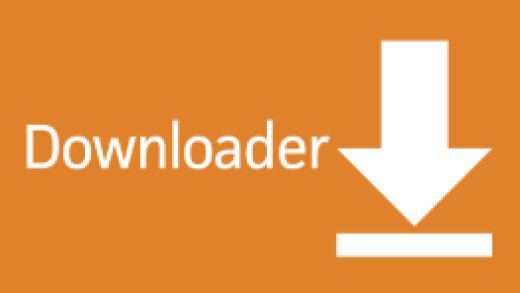The first book I finished this year was Jenny Odell’s How to Do Nothing: Resisting the Attention Economy, which made the argument that technology and social media were eating away at our attention. The book had a powerful critique of capitalism’s obsession with efficiency and productivity and called for us to reengage with the local and the natural world. It was in retrospect a very ironic choice given the year that was to come, which would be dominated by COVID and an election cycle that seemed to last forever—but that only makes Odell’s advice all the more important.

The two best novels I read this year were Mathias Énard‘s Zone and Hilary Mantel’s The Mirror and the Light. On the surface, the two books are very different: Zone is five hundred pages of stream-of-consciousness following a French Croatian spy as he travels to Rome on a train in the 1990s and thinks about his past, his role in the Yugoslav Wars, the women he’s been with, while The Mirror and the Light is the final book of the Cromwell trilogy, written in a more traditional close third person rich with historical detail and following Thomas Cromwell as he reaches to the peak of his powers before abruptly falling. Despite the stylistic and content differences, both books touch on something deeply human—through the level of detail, their astute political commentary, and their respective characters’ depth and complexity, they get at that ineffable thing we look for in novels, the powerful and very human vision of a complicated and often incomprehensible world.
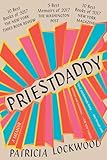
This year I also read Sally Rooney’s Normal People and Patricia Lockwood’s Priestdaddy, two celebrated books from previous years that had been on my list for a while. Priestdaddy was a joy: I was expecting something wonderful as all the rave reviews indicated, but I don’t think I was quite prepared for the humor and the insight—perfectly written sentences conveying a hilarious deadpan absurdity. Normal People, meanwhile, I was prepared to dislike, convincing myself that I was too fashionably nihilistic to be taken in by such a mainstream book—but the truth was, I was extremely, extremely moved by the ending, especially when Marianne and Connell are compared to “two little plants sharing the same plot of soil.” It felt like the truest metaphor for what it means to be in a long-term relationship with another person.

I also read several small press books that didn’t have the same level of media recognition but were just as powerful and compelling. Mohamed Asem’s memoir Stranger in the Pen described the author’s experience being detained by British immigration officers and reflected on the complexity of identity—the passages set in Kuwait I found particularly moving. Jenny Bhatt’s short story collection Each of Us Killers explored a range of experiences from India to the United States and deftly commented on social class and disparity. And Ali Eteraz’s Native Believer presented the story of a Muslim American trying to make in America, but in a way that I found refreshing, challenging more conventional approaches to “identity” fiction and willing to be transgressive and funny.
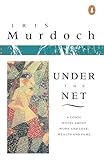 As the pandemic set in and quarantine/lockdown felt less and less temporary, I began to read old classics that I’d always meant to get around to. I listened to the audiobook of Graham Greene’s The End of the Affair, read by Colin Firth in what may be the best audiobook performance I’ve ever heard—no one does pinched British anguish quite like Colin Firth. I also listened to an audiobook of Barbara Pym’s Excellent Women, a subtle and funny comedy of manners about a single woman and part-time Church volunteer in 1950s Britain who meets a group of anthropologists and falls in love with a few of them. In addition, I read my first Muriel Spark novel (The Prime of Miss Jean Brodie) and my first Iris Murdoch novel (Under the Net), both of which were excellent and made me want to read everything else each author has ever written.
As the pandemic set in and quarantine/lockdown felt less and less temporary, I began to read old classics that I’d always meant to get around to. I listened to the audiobook of Graham Greene’s The End of the Affair, read by Colin Firth in what may be the best audiobook performance I’ve ever heard—no one does pinched British anguish quite like Colin Firth. I also listened to an audiobook of Barbara Pym’s Excellent Women, a subtle and funny comedy of manners about a single woman and part-time Church volunteer in 1950s Britain who meets a group of anthropologists and falls in love with a few of them. In addition, I read my first Muriel Spark novel (The Prime of Miss Jean Brodie) and my first Iris Murdoch novel (Under the Net), both of which were excellent and made me want to read everything else each author has ever written.
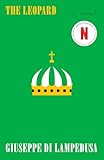
As far as audiobooks go, one of my favorite readers is Edoardo Ballerini, who was recently given an excellent profile in The New York Times. This year, I listened to his audiobook of The Leopard by Giuseppe di Lampedusa, a fantastic historical novel set in 1860s Sicily, about the social transition of the island from the old, dying aristocratic world to the new nationalism of a unified Italy. I love novels that have an awareness of historical change and don’t indulge in any false idea of universality, but understand that human feelings are deeply connected to time and place. In this vein, I also loved Colson Whitehead’s The Nickel Boys. Whitehead is another author who truly understands the power of history—without giving too much away, the final pages of The Nickel Boys almost brought me to tears. “Sit anywhere you like.”

As the year drew to a close, the election loomed, and it became impossible not to think of presidential politics and what it would mean for the Trump era to end. Earlier in the year, I’d read Kurt Baumeister’s Pax Americana, a comedic thriller set in a dystopian future in which George W. Bush nationalist evangelicalism has become the dominant cultural force in America. It’s a hilarious recreation of the Bush years but also a reminder of the suddenness of historical change: perhaps Trump’s idea of America will disappear as quickly and thoroughly as Bush’s.

The 2020 novel I read that dealt most explicitly with Trump was Ayad Akhtar’s Homeland Elegies, in which Trump features as a character in the early chapters, when the narrator’s father treats him for a potential illness. Akhtar’s novel is about the narrator’s relationship with his father, who in the book’s first sentence is thematically equated with Trump himself: “My father first met Donald Trump in the early ’90s, when they were both in their midforties—my father the elder by a year—and each was coming out from under virtual financial ruin.” The novel overall is a wonderful exploration of the father’s disenchantment with America, but it also inadvertently functions as a cathartic bookend to the Trump era.

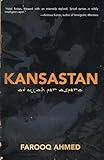 There were lots of other excellent books I read this year—Moroccan novelist Mohamed Choukri’s classics For Bread Alone and Streetwise, Megha Majumdar’s heartbreaking 2020 novel A Burning, Farooq Ahmed’s inventive and hilarious Kansastan, an alternate history that reimagines a narrative of the Civil War through an Islamic cultural lens. But there were also lots of books I started reading and never finished: E.P. Thompson’s The Making of the English Working Class, Marcel Proust’s Swann’s Way, Volume Six of Karl Ove Knausgaard’s My Struggle, Eric Hobsbawm’s The Age of Revolution, Shoshana Zuboff’s The Age of Surveillance Capitalism, Rick Perlstein’s Reaganland, Boccaccio’s Decameron, Barack Obama’s new memoir. So many starts, so many unfinished and still sitting in a hopeful pile on my side table, or 30% completed in my Audible app.
There were lots of other excellent books I read this year—Moroccan novelist Mohamed Choukri’s classics For Bread Alone and Streetwise, Megha Majumdar’s heartbreaking 2020 novel A Burning, Farooq Ahmed’s inventive and hilarious Kansastan, an alternate history that reimagines a narrative of the Civil War through an Islamic cultural lens. But there were also lots of books I started reading and never finished: E.P. Thompson’s The Making of the English Working Class, Marcel Proust’s Swann’s Way, Volume Six of Karl Ove Knausgaard’s My Struggle, Eric Hobsbawm’s The Age of Revolution, Shoshana Zuboff’s The Age of Surveillance Capitalism, Rick Perlstein’s Reaganland, Boccaccio’s Decameron, Barack Obama’s new memoir. So many starts, so many unfinished and still sitting in a hopeful pile on my side table, or 30% completed in my Audible app.
Looking
back, it’s clear I had a harder time finishing nonfiction books this year than
normal. Generally, I read an equal number of fiction and nonfiction—but this
year I read mostly novels. Perhaps between the pandemic and the election, there
was too much nonfiction in the real world, and I was drawn to more imaginative
narrative worlds.

In the remaining weeks of the year, I hope to finish a few more books: Golden Gate Jumper Survivor’s Society by Ross Wilcox, How Fires End by Marco Rafalà, Real Life by Brandon Taylor, and The Royal Abduls by Ramiza Koya, who sadly passed away earlier this year.
In
previous years, I’ve prided myself in reading a hundred books a year. This year
that will certainly not be the case. But despite that, I think I’ve had a more
profound interaction with books this year—the pandemic and the resulting extra
time spent inside my apartment has helped me understand why I value reading so
much. Jenny Odell in How to Do Nothing encouraged us to put away our
capitalist obsession with productivity and indulge in the act of doing less.
Reading a hundred books a year might be an admirable goal, but it’s also an act
of productivity. “I hope,” Odell writes, “that the figure of ‘doing nothing’ in
opposition to a productivity-obsessed environment…can help people find ways of
connecting that are substantive, sustaining, and absolutely unprofitable to
corporations, whose metrics and algorithms have never belonged in the
conversations we have about our thoughts, our feelings, and our survival.”
This
year has certainly been a year of survival—thankfully, books have been there to
help us.
More from A Year in Reading 2020
Do you love Year in Reading and the amazing books and arts content that The Millions produces year round? We are asking readers for support to ensure that The Millions can stay vibrant for years to come. Please click here to learn about several simple ways you can support The Millions now.
Don’t miss: A Year in Reading 2019, 2018, 2017, 2016, 2015, 2014, 2013, 2012, 2011, 2010, 2009, 2008, 2007, 2006, 2005
The post A Year in Reading: Aatif Rashid appeared first on The Millions.
Source : A Year in Reading: Aatif Rashid



